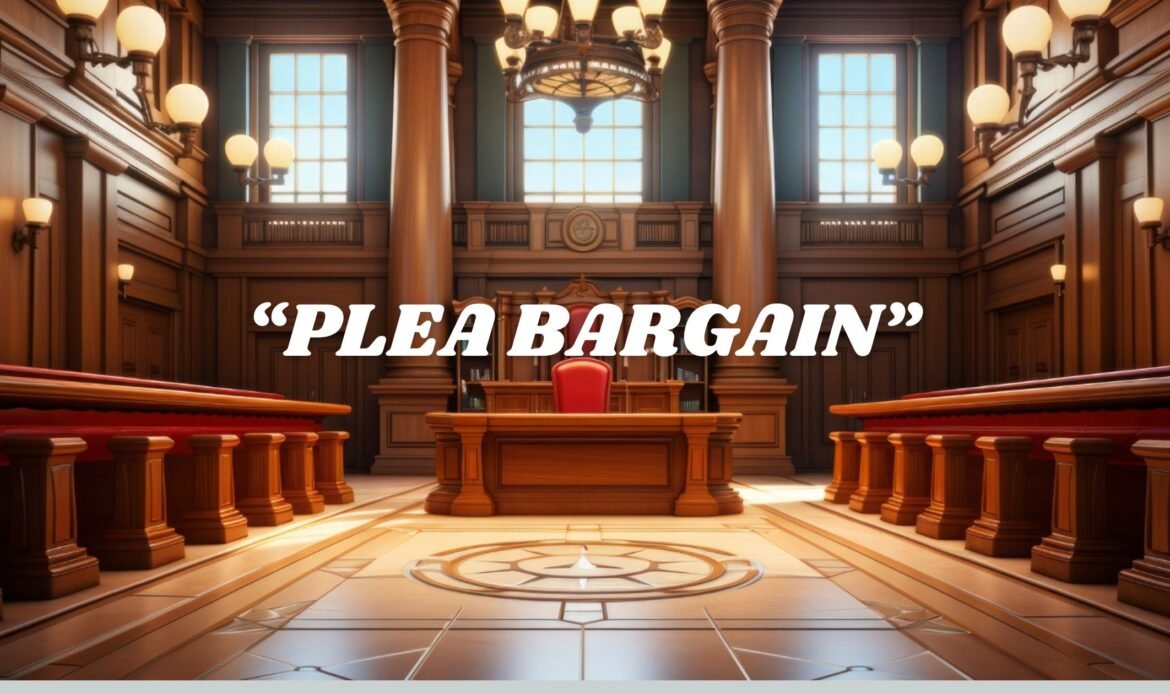In the intricate world of criminal law, the term “plea bargain” frequently surfaces as a pivotal part of the judicial process. For many, the idea of a plea bargain might seem abstract or even controversial. However, understanding what a plea bargain entails and how it functions within the legal system is crucial for anyone navigating through or interested in the criminal justice system. This blog aims to demystify the concept of a plea bargain, explain its workings in criminal law cases, and highlight its significance. We will also explore how Kshetry & Associates, a premier law firm in Kolkata, can provide invaluable guidance and support in plea bargain cases.
What Is a Plea Bargain?
A plea bargain is a negotiated agreement between the defendant and the prosecution in a criminal case. This agreement typically involves the defendant pleading guilty to a lesser charge or one of several charges in exchange for some concession from the prosecutor. This concession could be a reduction in the severity of the charges, a recommendation for a lighter sentence, or the dismissal of other charges.
Plea bargains are a common feature of the criminal justice system in many countries, including the United States and India. They offer a way to resolve cases without the need for a lengthy and uncertain trial. For defendants, a plea bargain can mean a more predictable and often less severe outcome than what might result from a trial verdict.
How Does Plea Bargain Work in a Criminal Law Case?
The process of plea bargaining involves several steps and key participants: the defendant, their defense attorney, the prosecutor, and the judge. Here’s a step-by-step look at how plea bargaining typically works:
- Initiation of Negotiations: Plea bargaining usually begins after the defendant is charged with a crime. The defense attorney and the prosecutor will initiate discussions to explore the possibility of a plea deal. Both sides will consider the strength of the evidence, the seriousness of the charges, and the potential risks and benefits of going to trial.
- Negotiation Process: During the negotiations, the prosecutor may offer a deal that includes a reduction in charges or a recommendation for a lighter sentence. The defense attorney will negotiate on behalf of the defendant to get the best possible terms. The defendant must fully understand the implications of accepting a plea deal, including the rights they are waiving by not going to trial.
- Agreement and Plea: If both sides reach an agreement, the defendant will formally plead guilty to the agreed-upon charges in court. This plea must be made voluntarily and with a full understanding of the consequences. The judge will then review the plea agreement to ensure it is fair and that the defendant’s rights are protected.
- Judicial Approval: The judge has the authority to accept or reject the plea agreement. If the judge accepts the plea, they will proceed to sentencing based on the terms of the agreement. If the judge rejects the plea, the defendant may withdraw their guilty plea and proceed to trial.
- Sentencing: Once the plea is accepted, the court will impose the agreed-upon sentence. This could include jail time, probation, fines, or other penalties, depending on the specifics of the agreement.
Plea Bargain Significance
Plea bargaining holds significant importance in the criminal justice system for several reasons:
- Efficiency: Plea bargains help to reduce the burden on courts by resolving cases quickly. This efficiency is crucial in systems where courts are overburdened with a high volume of cases.
- Certainty: For defendants, a plea bargain offers a degree of certainty. By accepting a plea deal, defendants can avoid the unpredictability of a trial and potentially harsher penalties.
- Resource Allocation: By resolving cases through plea bargains, the criminal justice system can allocate its limited resources to more serious cases that require a full trial.
- Victim Relief: In some cases, plea bargains can provide a sense of closure to victims, as they do not have to endure the lengthy and stressful process of a trial.
How Kshetry & Associates Can Help
Well, navigating the complexities of a plea bargain requires expertise and strategic thinking. But fret not, as Kshetry & Associates, one of the best law firms in Kolkata, offers comprehensive support and guidance to individuals facing criminal charges. Here’s how they can help:
- Expert Advice: The legal team at Kshetry & Associates has extensive experience in criminal law and plea bargaining. They can provide expert advice on whether a plea bargain is the right choice and what terms would be most favorable.
- Negotiation Skills: The firm’s attorneys are skilled negotiators who can effectively communicate with prosecutors to secure the best possible deal for their clients. Their goal is to minimize the impact of the charges and obtain a fair outcome.
- Client Support: Facing criminal charges is a daunting experience. Kshetry & Associates offers compassionate support to their clients, ensuring they fully understand their options and the implications of any decisions they make.
- Representation in Court: Should a plea bargain be accepted, the firm will represent its clients in court, ensuring that the plea is presented properly and that the defendant’s rights are protected throughout the process.
- Post-Sentencing Guidance: After sentencing, Kshetry & Associates continues to provide support, helping clients understand and comply with any conditions of their sentence and exploring options for an appeal if necessary.
Overall, a plea bargain is a crucial element of the criminal justice system that can provide a more predictable and often less severe resolution to criminal charges. For those facing such charges, having experienced legal representation is essential. Kshetry & Associates in Kolkata offers the expertise, negotiation skills, and support needed to navigate the plea bargaining process effectively, ensuring the best possible outcome for their clients.

